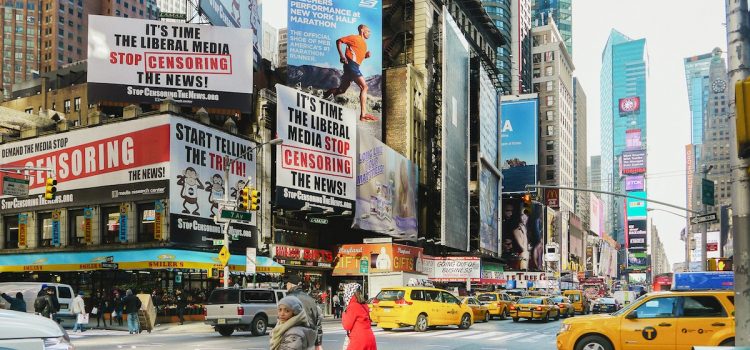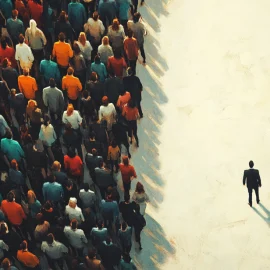

This article is an excerpt from the Shortform book guide to "American Marxism" by Mark R. Levin. Shortform has the world's best summaries and analyses of books you should be reading.
Like this article? Sign up for a free trial here.
Is the media involved in silencing the opposition? If so, how? What’s the harm of cancel culture?
Mark Levin argues that leftists have built a system that teaches young Americans to hate the nation and rebel to achieve justice. Part of this machine is censorship and cancel culture, which scares them into submission and uniformity.
Read more to understand Levin’s argument regarding censorship in America.
Censorship and Cancel Culture
Levin asserts that the media reinforces Marxist indoctrination and that it’s also beginning to silence opposition through censorship and cancel culture.
Levin explains that leftist media has begun to engage in censorship in America by endorsing and practicing the social media trend of “cancel culture” that has taken off over the last few years. This new trend seeks to debase any person of power or influence who opposes or offends leftist agendas and ideologies. These opposers are “canceled,” or in other words, deemed no longer relevant or credible.
| Cancel Culture: Censorship or Accountability? Levin explains that cancel culture is a threat to American society because it debases and censors those who oppose leftist ideologies and agendas. However, research shows that only a small percent of US adults agree with this assertion, while the majority see cancel culture as a tactic used to hold people accountable for inappropriate behavior. Opinions about cancel culture seem to diverge across the political divide—one survey reports that of those familiar with cancel culture, conservative Republicans tend to hold the most negative perceptions of it, while liberal democrats tend to hold the most positive perceptions. More than half of moderate/liberal Republicans, conservative/moderate Democrats, and liberal Democrats view cancel culture positively—as actions that hold people accountable. The majority of conservative Republicans (64%) disagree with this statement. On the other side of the argument, roughly a quarter of conservative Republicans see cancel culture as a form of censorship, as Levin claims. 85% of moderate/liberal Republicans and almost all Democrats disagree. And conservative Republicans (13% of them) were the most likely group to agree with Levin’s belief that cancel culture is an attack on traditional American society. These polls reveal that only those on the far right of the political spectrum in the US tend to share Levin’s perspective on cancel culture. |
As this trend of cancel culture grows, Big Tech companies such as Google and Twitter are censoring and banning people of their own will. These companies are even blatantly removing articles and profiles that oppose leftist ideologies. Whereas social media used to be a place for people with different points of view to converse, posts are now becoming streamlined into a single leftist voice.
| Divided Conservative Perspectives on Big Tech Censorship Levin and many other Americans agree that cancel culture and Big Tech censorship are getting out of hand. Most of Big Tech’s censorship is of conservative voices so, naturally, most people who oppose these practices are conservatives such as Levin. Their primary argument is that Big Tech’s censorship is an infringement on their freedom of speech. However, experts explain that some conservatives, like the Kochs, believe that denying Big Tech this right is actually antithetical to the GOP’s values, which emphasize the free market and oppose regulatory intervention—two values Levin advocates for throughout American Marxism. This split in perspective has divided conservative thinkers on what to do about Big Tech censorship. Some GOP legislators have partnered with Democrats to develop bills to end this censorship. Others, like Koch-backed groups and the US Chamber of Commerce, openly oppose any and all legislation that will regulate Big Tech. And a third group, including those on the right such as Levin, deplore what Big Tech is doing but doesn’t recommend any legal action to end it. According to the Kochs’ argument, Levin’s ideals seem to indicate that he would oppose legislation ending Big Tech censorship. However, despite his criticism of Big Tech censorship, support for the free market, and opposition to regulatory intervention on businesses, Levin never mentions this legislative debate or his standpoint on it. |

———End of Preview———
Like what you just read? Read the rest of the world's best book summary and analysis of Mark R. Levin's "American Marxism" at Shortform.
Here's what you'll find in our full American Marxism summary:
- Why Mark Levin thinks leftist organizations are fueling a Marxist revolution
- Who the American Marxists are and what ideologies they’re pushing
- What American patriots can do to maintain their freedom






